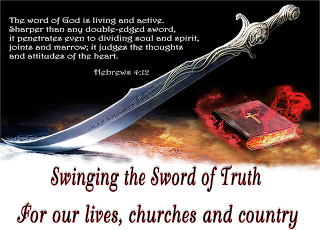The recent tax law passed by Congress designed to shovel gigadollars toward wealthy individuals and corporations.
Since the Trumpenator signed that legislation, corporations have used the majority of their newfound wealth to fund enormous share repurchase plans, which fatten their stock prices while diminishing the power of shareholders.
Since executive compensation at the upper levels is based primarily on stock price, the fat cats in the C suites now have billions more in personal wealth than they did 6 months ago. Meanwhile, Congress is hard at work figuring out how to slash funding for Medicare and Medicaid while eviscerating Social Security to pay for that billionaire booster.
An example of how the system works: Walmart made a big show of paying bonuses to some of its employees. Then it laid them off. They are eligible to apply for reinstatement, however, provided they accept lower wages. See how the little people get it in the neck every time? The rich get richer. Everybody else gets a slap in the face. Welcome to the brave new world of benevolent corporatism.
A report from the World Inequality Lab makes the lie behind “trickle down economics” crystal clear.
The report is featured in the March edition of the Harvard Business Review.
The stated mission of the Lab is set forth in the Executive Summary of the report: “By developing this report,
the World Inequality Lab seeks to fill a democratic gap and to equip various actors of society with the necessary facts to engage in informed public debates on inequality.”
The Executive Summary is available in 8 languages.
“The series presented in this report rely on the collective efforts of more than a hundred researchers, covering all continents, who contribute to the WID.world database. All the data are available online on wir2018.wid.world and are fully reproducible, allowing anyone to perform their own analysis and make up their own mind about inequality.”
The report is featured in the March edition of the Harvard Business Review.
The stated mission of the Lab is set forth in the Executive Summary of the report: “By developing this report,
the World Inequality Lab seeks to fill a democratic gap and to equip various actors of society with the necessary facts to engage in informed public debates on inequality.”
The Executive Summary is available in 8 languages.
The game is called “divide and conquer” and it has been well known since at least the days of Sun Tzu in 512 BC. The appeal to single-issue voters made easier by digital communications means whenever the people begin to get a whiff of the deceit rolling downhill towards them, the masters of the universe distract them with cries of “What about abortion?” or “What about transgender kids urinating in the wrong toilet?” or “What about forcing people to bake cakes that offend their religious principles?” or “Carrying a rifle that spits out 100 bullets a minute is right guaranteed by the Constitution!”
When the smoke clears, the rich get what they want and the rest of us get bupkes. If you are a single-issue voter, you are not a patriot, you are just a patsy begging to be manipulated by special interests who do not have your best interests at heart. At least as far as American politics is concerned, it is clear that both political parties have aligned to punish the majority in order to enrich the minority.
That’s the conversation we should be having now, not whether Trump did this or Nancy Pelosi said that.
The students at Parkland High School have shown us we don’t have to accept being be stepped on by our government and its so-called leaders. If the people will lead, their leaders will follow.
Let the leading begin!
Don’t think for a minute these people give a flying fig leaf about you. They are largely in it for themselves and only themselves. They deliberately pit us against each other so they can rob us blind while we are busy fighting each other. We can choose to not let this happen, but it means taking off our “single issue” blinders and talking to each other rather than past each other.














































